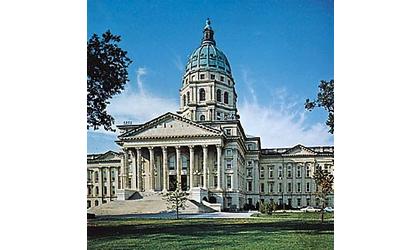(KAIR)--A young state agency created to make sure the state looks after the children put in its care has 69 open investigations manned by a staff of five people.
That’s according to a report from the Kansas News Service, which says In one of the just seven cases that the Division of the Child Advocate has closed, it concluded that state officials met with a child too little and tried to move them to a new home weeks after major brain surgery.
Gov. Laura Kelly both created the special ombudsman's office and, as the state’s chief executive, she’s ultimately responsible for the state’s foster care system. Child advocate Kerrie Lonard told lawmakers on Tuesday that the office has had a hectic start, saying, “it does not feel sustainable.”
However, Lonard expects things to run smoother as her office fine-tunes its processes.
The Kansas News Service obtained a report the advocate’s office filed overlooking how the Department for Children and Families, and the private contractors it relies on to arrange foster care, handled the case of the child who underwent brain surgery.
In that report, investigators concluded that caseworkers filed inaccurate court documents, failed to meet with the child often enough — sometimes going a full month without seeing the child in person — and started efforts to move the child during recuperation from the brain surgery.
Lonard said the findings her office makes in each case will get released to the public when her office files its annual report, something mandated by an executive order Kelly signed last year.
The office sprung up through that order to monitor the state’s troubled child care system.
Kansas Republican United States Senator Jerry Moran joined his Democratic counterpart, Jon Tester, of Montana, both members of the Senate Committee on Indian Affairs, in introducing legislation to reaffirm that any land taken into trust by the United States for Indian tribes is federally recognized from the day it was first taken into trust.
A release from Moran’s office explains that under the Indian Reorganization Act of 1934, the Secretary of the Interior was given authority and guidelines for taking land into trust for Indian Tribes. A 2009 Supreme Court decision denied the secretary’s authority for tribes who received federal recognition after IRA’s enactment. The senators’ legislation would ensure any land taken into trust after the IRA is still recognized and protected and shall remain in Indian country.
Moran, in the release, says that since the 2009 decision, tribes throughout the country recognized after 1934 have faced uncertainty regarding their lands taken into trust,” adding that short of a full legislative fix, that he would support, Moran says the “bill will assure times of the status of their lands already in trust and enable stable economic development going forward.”
© Many Signals Communications
MOST VIEWED STORIES
St. Joseph Mo man killed in KS crash
Sunday evening kitchen fires battled in Atchison; one injured
Pole struck Friday; young cyclist struck Saturday in Atchison hit and run
Atchison man arrested following pursuit
Hiawatha USD 415 Supt. announces retirement
Woman arrested after Holton search warrant
Officer bitten during Atchison arrest
Pottawatomie Co Sheriff's Office K9 dies
Packed hearing Thurs for Atchison Co Lake's future
City Commission approves removal of breed-specific dog ban
New Jeff Co North leadership hired
Longtme Falls City business owner dies
Local judge among 15 seeking Supreme Court vacancy
"Highly anticipated" blackout plates coming to KS
New Brown Co Special Education director hired
Falls City Council takes action on vacant properties
County Commission approves bid for new landfill building
LATEST STORIES
Click It or Ticket campaign begins May 18
Boil Water Advisory Rescinded for Robinson
Pawnee City School Board meets
Johnson-Brock School Board meets
Packed hearing Thurs for Atchison Co Lake's future
Plea entered in Jackson Co child sex case
Doniphan Co to reapply for grant for ADA project


 Printer Friendly
Printer Friendly
 Email to a Friend
Email to a Friend






